As a postdoc at the University of Oxford in England, Mirella Koleva spent her nights and weekends developing a model that accurately predicted light-matter interactions at the quantum level.
When it was clear that the model worked and could be valuable across industries to simulate quantum-photonic devices, Koleva left academia, incorporated a business called Quantopticon and received a startup grant from the British government.
But finding additional funding proved difficult. To continue growing the business, she looked across the Atlantic Ocean to Illinois. In 2021, the company was accepted into Duality, the first accelerator in the US that exclusively supports startup companies focused on quantum technology, an area that is poised to drive revolutionary advances across multiple industries by harnessing the properties of nature’s tiniest particles.
It wasn’t a brief trip across the pond. Two years later, Koleva still lives in Chicago, and the company is in the process of moving its headquarters here.
“Chicago is the premier hub for quantum in the United States,” she said. “It’s where many of our target customers are based, and there are just more players involved in the ecosystem who want to collaborate. So, we absolutely want to have an office here.”
Koleva’s story exemplifies that of many in the quantum information science and engineering community. Professors, researchers, startup founders, and students are finding their way to the Midwest corridor than runs from Madison, Wis., through Chicago and down to Urbana-Champaign, Ill., to be part of the growing quantum ecosystem that some call the Quantum Prairie.
It’s an ecosystem built on a foundation of institutions that are home to some of the world’s leaders in QISE research—including Chicago Quantum Exchange members the University of Chicago, the U.S. Department of Energy's Argonne National Laboratory, DOE's Fermi National Accelerator Laboratory, the University of Illinois Urbana-Champaign, the University of Wisconsin–Madison, and Northwestern University—and bolstered by hundreds of millions of dollars in government and corporate investment, supported business growth and deep local and international partnerships aimed not only at advancing quantum science and technologies but building a strong quantum workforce and driving the quantum economy.
The region was a leading recipient of funds from the 2018 National Quantum Initiative Act, bringing in $280 million to build four of the Act’s 10 quantum science research centers and institutes: Q-NEXT and the Superconducting Quantum Materials and Systems Center, both funded by the US Department of Energy, and Quantum Leap Challenge Institutes for Quantum sensing for Biophysics and Bioengineering and Hybrid Quantum Architectures and Networks, funded by the National Science Foundation.
Big investments
The state of Illinois has invested $200 million for new quantum facilities for the region, and in May, at the G7 Summit in Japan, the University of Chicago, University of Tokyo, IBM, and Google announced partnerships to advance workforce development and quantum computing—agreements that included $100 million in support from IBM and $50 million in support from Google.
Also contributing to the region’s strength are international partnerships with the United Kingdom, including one between SQMS and the United Kingdom’s National Physical Laboratory and Royal Holloway, University of London; collaborations with other institutions in Japan, including a recent agreement between UChicago and Tohoku University; and partnerships between the CQE and institutions in Israel, Australia, the Netherlands.
The Chicago Metro region’s economy is among the most diverse in the nation, with no one sector representing more than 13% of the overall regional economy—an advantage given quantum’s potential to impact multiple industries. And according to a report released by World Business Chicago:
- The broader Chicago region that includes Urbana-Champaign, Ill., and Madison, Wis., is among the best positioned to supply the future quantum workforce: Chicago Quantum Exchange member universities rank second in the nation for number of quantum-related Ph.D. graduates, and the region has the third-highest number of universities engaged in quantum research activities.
- Since 2017, Illinois quantum startups have raised $33.2 million through 27 deals — the second-highest number of deals by quantum startups after California.
- The Chicago metro area's high-tech industry is poised to grow by 15% between 2022 and 2026.
124-mile quantum network
In addition, the ecosystem, anchored by a 124-mile quantum network that is one of the longest in the nation, also includes economic and workforce development nonprofits; academic institutions like the University of Illinois Chicago and Chicago State University, both Minority-Serving Institutions that are leaders in QISE education; and a growing number of quantum businesses and startups—all engaged in transforming the region from a quantum powerhouse to the heart of the nation’s quantum economy.
The CQE, which facilitates interaction among these institutions—including its six members, more than 40 corporate and nonprofit partners and other members of the quantum ecosystem—is based at UChicago’s Pritzker School of Molecular Engineering, the first school in the nation dedicated to the emerging field of molecular engineering.
“There’s nowhere else that has the convergence of institutions and deep well of talent in a robust, exciting city that has a reasonable cost of living,” said Nick Farina, CEO of quantum computing startup EeroQ, which moved its headquarters to Chicago’s Humboldt Park neighborhood in 2022.
This summer, we talked to six rising leaders—founders, scientists and an undergraduate student—who have come to the region not only for its quantum foundation but for the inclusive opportunities, robust collaboration, and deep business and entrepreneurial support that are helping create its quantum future. Their personal stories offer insight into the people, programs, and partnerships driving its growth.
Creating inclusive opportunities for quantum workforce
Thomas Searles never thought he’d become a quantum scientist in Chicago. Growing up in Georgia, he wanted to be an astronaut. But when he attended Morehouse College in Atlanta, one of the top producers of Black physicists in the country, he was introduced to quantum mechanics, and in graduate school at Rice University he studied how light interacts with quantum materials.
After becoming an assistant professor at Howard University, Searles got in touch with his mentor, University of Illinois Chicago Professor Jeremiah Abiade, who asked if he would be open to moving to Chicago. Searles was unsure, but after a few Zoom calls in 2020, he felt intrigued by the access to Argonne and Fermilab and the national quantum research centers.
“I came to Chicago sight unseen in May,” he said. “I had to buy a coat. But then I moved my entire research group and family here. I was hoping to be accepted by Chicago’s quantum community and find opportunities for my students, and it has been way above my expectations.”
Now, as a professor at UIC, he’s continuing his research on quantum materials, computing, and networking. On August 22, UIC announced that Searles will lead a new national consortium aimed at educating the next generation of quantum engineers through a $4.8 million, three-year US Department of Energy award. The ReACT-QISE Consortium, funded through the DOE RENEW Initiative and led by UIC, will include seven Historically Black Colleges and Universities, Hispanic-Serving Institutions and institutions serving predominantly female students.
Searles is also collaborating with Argonne and Fermilab; is affiliated with the Illinois Quantum Information Science and Technology Center at the University of Illinois Urbana-Champaign; and uses IBM’s quantum computing systems via expanded access facilitated by the CQE for member institutions, including UIUC, and through UIC's participation in the Center for Co-Design of Quantum Advantage at Brookhaven National Laboratory, a relationship Searles spearheads. He also hopes to connect to the region's quantum network.
“But my main goal is to change the lives of young people,” he said. “I want to create a space where students can think freely and have a safe learning environment and become involved in the quantum ecosystem here in Chicago.”
In the city, he says, his students have three or four quantum events they can attend each week. Proximity to national labs also gives them more opportunities for research and exposure, especially for students who don’t have the ability to travel.
“Chicago is the best place in the world for quantum,” he said. “It is the epicenter of the quantum information community. Having this kind of blueprint for what a quantum ecosystem can look like is very important. As a Black man from the South to have an opportunity to live in a major city and do this type of science—if I can make it in Chicago, anybody can.”
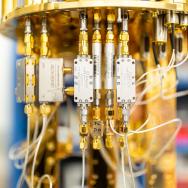
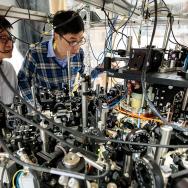




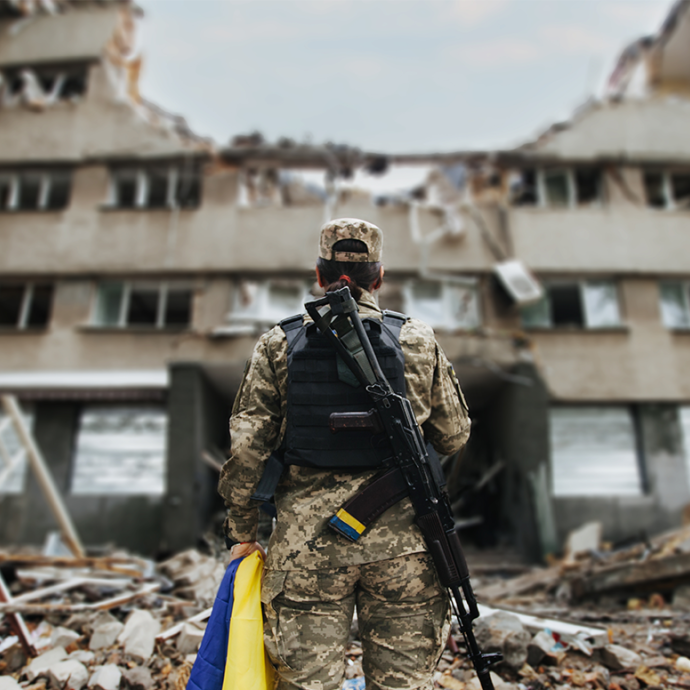

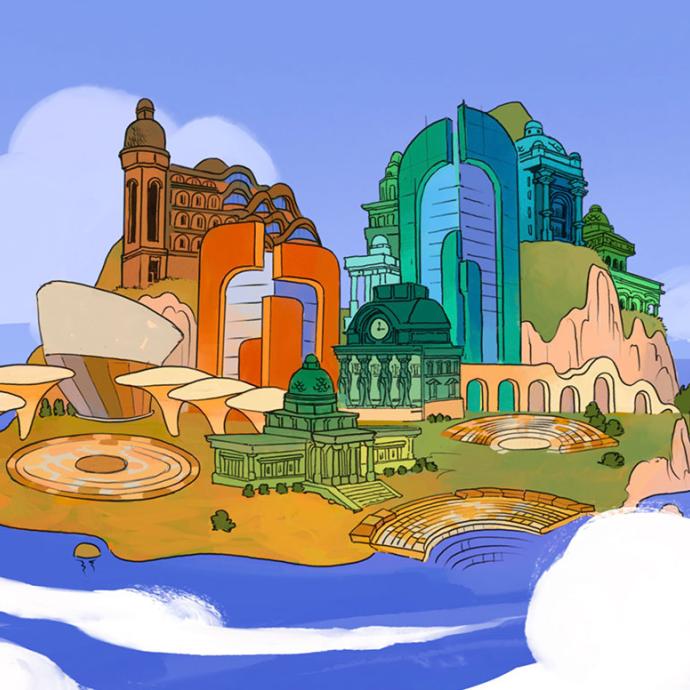
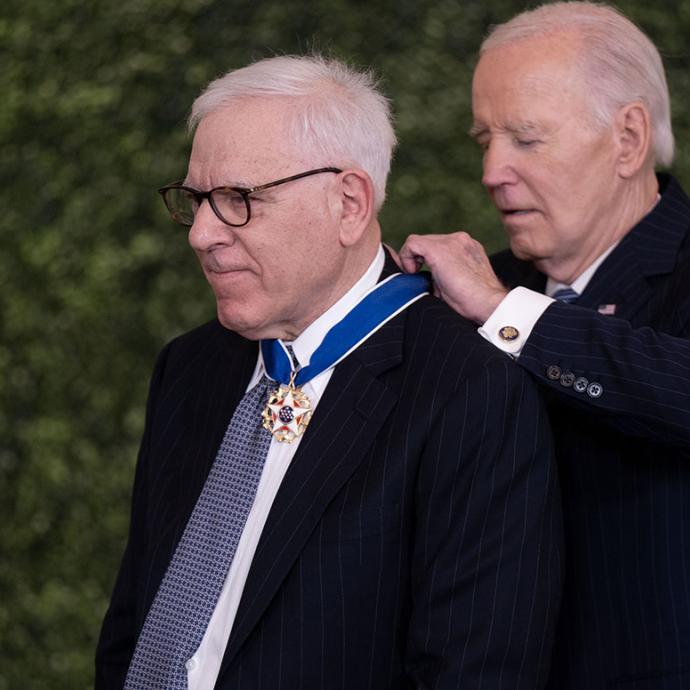
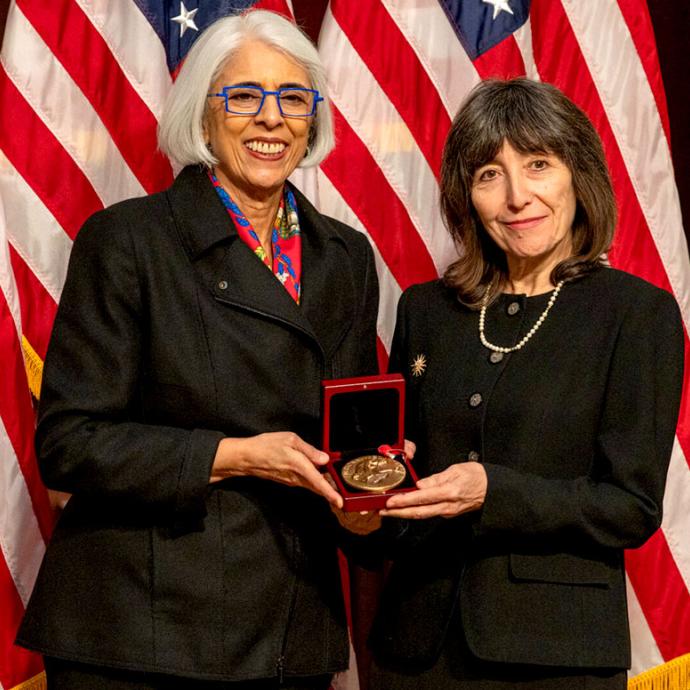
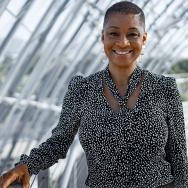 —Prof. Jacqueline Stewart
—Prof. Jacqueline Stewart
